#midaregamis
Text
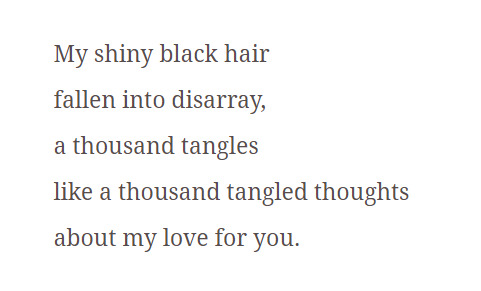
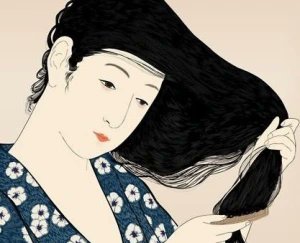
Yosano Akiko, くろ髪の千すぢの髪のみだれ髪かつおもひみだれおもひみだるる; from Midaregami (Tangled Hair, 1901)
#akiko yosano#japanese poem#japanese art#japanese poetry#feminism#japanese feminism#tangled hair#yosano akiko#midaregami#dark academia#light academia#literature#bungou stray dogs#hopeless romantic#romantic academia
24 notes
·
View notes
Text
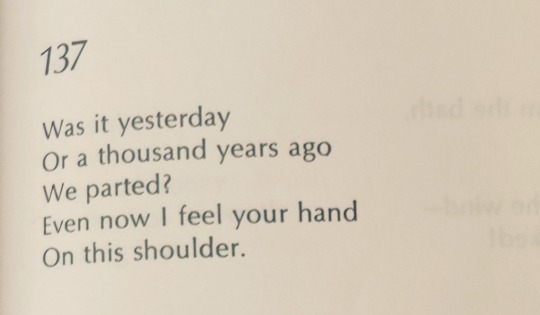
-Yosano Akiko, Tangled Hair, Selected Tanka from Midaregami
Translated by Sanford Goldstein and Seishi Shinoda
43 notes
·
View notes
Text

it's been a year so i want to repost this!! a translation of the first five poems of Akiko Yosano's Midaregami.
https://ttto.cafe/midaregami
some of them had never appeared in english, and i think they are REAL good poems. someday i'll translate the other 394 poems, they're all bangers
21 notes
·
View notes
Text
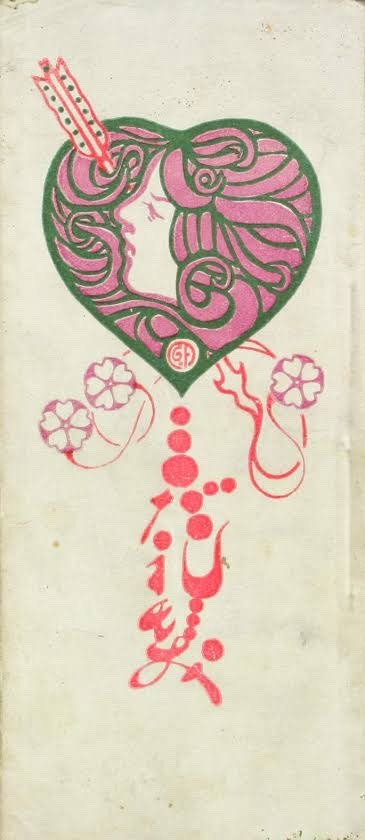
cover art for midaregami by takeji fujishima (1867-1943)
midaregami (みだれ髪, tangled hair) is a collection of tanka (short poem), written by japanese writer, akiko yosano in 1901
#midaregami#みだれ髪#fujishima takeji#藤島武二#art#cover art#pinkcore#heartcore#lovecore#pink aesthetic#yosano akiko#与謝野晶子#girlblog
42 notes
·
View notes
Text
The most popular form of Japanese poetry for twelve hundred years has been the tanka. Ninety percent of the 4,500 poems in Japan's oldest anthology of poetry, the Man'yo-shu, are in this form, and of the one thousand poems in Japan's second oldest anthology, the Kokinshu, only nine are not. Since Emperor Daigo ordered the compilation of this second anthology, twenty-one collections were decreed by Imperial edict, the last compiled by order of Emperor Go-Hanazono in 1439. As a result this practice gave to tanka a most respected place in the history of Japanese literature. The tanka received Imperial patronage and produced, naturally enough, generation after generation of court poets.
To these court poets the poetry of the Kokinshu represented the height of polished technique. They made it their sacred book, one to be imitated eternally. But as time passed, many words and phrases were totally incomprehensible to the mass of readers. Those families versed in the art of tanka capitalized on the inscrutable expressions in these poems and monopolized the field. The prestige of the poetry families was heightened; moreover, the financial rewards were great. For hundreds of years the heirs of these families were initiated into the well-guarded techniques of the art. As a matter of course, poets and their poems were conservative in the extreme.
In 1871 what later became the Imperial Poetry Bureau was established under the Ministry of the Imperial Household, the commissioners of the bureau descendants of these very court poets and their disciples. The commissioners were rigid formalists absorbed in preserving tradition yet deficient in creative energy. Until the end of the second decade of the Meiji era (1868-1912), poets were completely dominated by the Poetry Bureau School, or, as it was later called, the Old School. The poets of the Old School were removed from the dynamic life of Meiji as it experienced the impact of Westernization. Their poems, deficient in real feeling, were concerned only with the beauty of nature. Suddenly aware of the rapidly progressing materialism of the new age, the Old School began to feel something of its impact and tried to adapt their art to the new era. But inadequate in talent and sensibility, they were unable to keep pace with the times, even though they introduced into tanka the telegraph and the railroad. Their newness never went beyond mere subject matter.
This stirred Japan's younger poets and students of Japanese literature to rescue the tanka through innovation. Yoshiyuki Hagino, in his 1887 essay "The Reform of Tanka," suggested its diction be modernized, its style be given greater freedom, its subject matter be made more masculine.
In February 1893, Naobumi Ochiai, a noted poet and scholar, founded the Asaka-sha (The Brotherhood of Asaka), named after the district in Tokyo. Ochiai and his collaborators, among them Tekkan Yosano, were against the Old School and were tanka-reformists. Tekkan advocated a more "manly" poetry, his proclamation causing an enthusiastic response, since it was the eve of the Sino-Japanese War and his words were markedly nationalistic. He maintained that a nation's prosperity was directly linked to its literature and that effeminate tanka was harmful to Japan, launching the soon-to-be-famous magazine Myojo. One of his disciples would be Akiko Yosano (his future wife) - it was Akiko herself who would actually establish the new style of tanka.
Akiko was the third daughter of Soshichi Ho, owner of a famous confectionary shop used by the Imperial household. The name Ho ("Phoenix" in Chinese) suggests that a remote ancestor, probably a Chinese artisan, had settled in Japan, though the famous poet and author Haruo Sato rejects this possibility. Akiko's father registered her name as Sho, merely a Chinese character, but to make the name more feminine, Akiko later added to it the suffix "ko." Since the character "Sho" can also be pronounced "Aki" in Japanese, her pen name became Akiko.
The once prosperous port of Sakai, where Akiko was from, had earlier produced many rich merchants of aristocratic taste, not the least of whom was the famous tea ceremony master Rikyu. True to local tradition, Akiko's father was more interested in art than business. At the same time he was very much concerned about the upbringing of his eight surviving children. Akiko was born two months after a boy in the family had died in an accident. Her father had believed the new child would be a male. When he discovered its sex, he was quite angry, and instead of the usual celebration seven days after the birth of a child, he left home and remained at an inn for several days. His disappointment turned into a hatred for the infant. In order to appease her husband and mother-in-law, Akiko's mother asked her younger sister to bring up the child; consequently, Akiko was raised by her aunt for three years. Akiko's mother was forced to visit her daughter only at night to escape detection by her husband and mother-in-law. When a third son was eventually born, Akiko's mother felt justified in bringing Akiko back home. At first her father disliked her, but she was so bright that he gradually became fond of her. Later his admiration increased, and recognizing her literary talents, he gave her the highest education possible for a woman in that district.
Akiko graduated high school in 1892 and had gone as far as a woman could go in terms of her education. But she still had to run her father's shop after her elder brother left Tokyo to study science. Her father had little interest in business, and her mother was in delicate health. Until she left home, Akiko was the main support of her family. It was doubly frustrating for Akiko, educated as she had been, to undergo the restraints imposed by her domineering father. A strict believer in feudalistic morality, he refused to allow her out alone even during the day, a member of the family or a servant always accompanying her. At night she was locked in her bedroom, a practice established among the rich in Sakai to ensure her virginity. Her father also tended to ignore his daughter in partiality to his sons. Later she was to give vent to her feelings in the bold unconventional tanka of Midaregami (Tangled Hair).
The word Midaregami (tangled or disheveled hair) does not imply a slovenly or unaesthetic appearance in this context. Today, when the Japanese are favoring more direct expression, evocative values of earlier terminology are lost to the younger generation. In the days before World War I, the image of a woman with even slightly disordered hair had an erotic association. H.H. Honda, in his small volume entitled The Poetry of Yosano Akiko, translates Midaregami as "Hair in Sweet Disorder."
In those earlier days Japanese women took pride in long, black, straight hair. No woman thought of cutting or curling her hair. Women born with curly hair took great pains to straighten it with steamed towels and hair irons. It was also considered a disgrace for a woman to let others see her hair disheveled, it being part of female virtue to have meticulously neat hair. Women with disheveled hair were considered loose and immoral. Still, in those pre-Taisho days, a few stray hairs or hair in slight disarray evinced an erotic resonance. Many examples of midaregami were depicted in woodprints. But Akiko raised midaregami to a further level, equating it with the emancipation of women and sexual freedom. The implications behind her use of the term, while also embodying the usual associations, braid through them a complex pattern of great beauty, sexuality, and even psychological disturbance or madness. While other authors were moving away from romanticism and more towards naturalism, Akiko ushered in a new age of romantic love, allowing again for poetry to prosper.
2 notes
·
View notes
Text

牡丹臭木[Botankusagi]
Clerodendrum bungei
牡丹[Botan] : Paeonia suffruticosa
臭木[Kusagi] : Clerodendrum trichotomum
臭木 means 臭い木[Kusai ki](Smelly tree). When the branches and leaves are rubbed, they give off a strong odor similar to peanuts. Although the flowers in full bloom are gorgeous, when they are still at about half-bloom, the deep colors of the buds combine to create a graceful appearance. The color of the buds is 臙脂[Enji](Carmine) and that of the flowers is 淡紅藤[Usubenifuji|Awabenifuji](Light red wisteria).
臙脂色は 誰にかたらむ 血のゆらぎ 春のおもひの さかりの命
[Enji iro wa tare ni kataran chi no yuragi haru no omoi no sakari no inochi]
To whom shall I speak of (my heart in) carmine-color, which is my heaping life with the wavering of blood and the passion of springtime (or my youth) ?
From 臙脂紫[Enjimurasaki(Carmine purple) in みだれ髪[Midaregami](Tangled hair) by 与謝野晶子[Yosano Akiko]
Source : https://dl.ndl.go.jp/pid/874453/1/9
20 notes
·
View notes
Text
the unofficial ultimate bungo stray dogs reading list
this is mainly for myself bc i rly do want to read most if not all of these and i'm sure it's already been done by someone somewhere. but, i thought why not post it lmao; most if not all of these can be found on anna's archive, z-library, or project gutenberg! (also, consider buying from your local bookstore!) for those that are a bit harder to find, i've included links, though some are from j-stor and would require login to access.
detective agency:
osamu dazai:
no longer human (novel)
the setting sun (novel)
nakajima atsushi:
the moon over the mountain: stories (short story collection)
light, wind and dreams (short story)
fukuzawa yukichi:
an encouragement of learning (17 volume collections of writings)
all the countries of the world, for children written in verse (textbook)
yosano akiko:
kimi shinitamou koto nakare (poem)
midaregami (poetry collection)
edogawa ranpo:
the boy detectives club (book series)
japanese tales of mystery and imagination (short story collection)
the early cases of akechi kogoro (novel)
kunikida doppo:
river mist and other stories (short story collection)
izumi kyouka:
demon lake (play)
spirits of another sort: the plays of izumi kyoka (play collection)
tanizaki junichirou:
the makioka sisters (novel)
the red roof and other stories (short story collection)
miyazawa kenji:
ame ni mo makezu; be not defeated by the rain (poem)
night on the galactic railroad (novel)
strong in the rain (poetry collection)
port mafia:
mori ougai:
vita sexualis (novel)
the dancing girl (novel)
nakahara chuuya:
poems of nakahara chuya (poetry collection)
akutagawa ryuunosuke:
rashoumon (short story)
the spider's thread (short story)
rashoumon and other stories (short story collection)
ozaki kyouyou:
the gold demon (novel)
higuchi ichiyou:
in the shade of spring leaves (biography and short stories)
hirotsu ryuurou:
falling camellia (novel)
tachihara michizou:
in mourning for the summer (poem)
midwinter momento (poem)
from the country of eight islands: an anthology of japanese poetry (poetry collection)
kajii motojirou:
lemon (short story)
yumeno kyuusaku:
dogra magra (novel)
oda sakunosuke:
flawless/immaculate (short story)
sakaguchi ango:
darakuron (essay)
the guild:
f. scott fitzgerald:
the great gatsby (novel)
the beautiful and the damned (novel)
edgar allen poe:
the raven (poem)
the black cat (short story)
the murders in the rue morgue (short story)
herman melville:
moby dick (novel)
h.p. lovecraft:
the call of cthulhu (short story)
the shadow out of time (novella)
john steinbeck:
the grapes of wrath (novel)
of mice and men (novel)
lucy maud montgomery:
anne of green gables (novel)
the blue castle (novel)
chronicles of avonlea (short story collection)
louisa may alcott:
little women (novel)
the brownie and the princess (short story collection)
margaret mitchell:
gone with the wind (novel)
mark twain:
the adventures of tom sawyer (novel)
adventures of huckleberry finn (novel)
nathaniel hawthorn:
the scarlet letter (novel)
rats in the house of the dead:
fyodor dostoevsky:
crime and punishment (novel)
the brothers karamozov (novel)
notes from the underground (short story collection)
alexander pushkin:
eugene onegin (novel)
a feast in time of plague (play)
ivan goncharov:
the precipice (novel)
oguri mushitarou:
the perfect crime (novel)
decay of the angel:
fukuchi ouchi:
the mirror lion, a spring diversion (kabuki play)
bram stoker:
dracula (novel)
dracula's guest and other weird stories (short story collection)
nikolai gogol:
the overcoat (short story)
dead souls (novel)
hunting dogs: (i must caveat here that the hunting dogs are named after much more comparatively obscure jpn writers/playwrights so i was unable to find a lot of the specific pieces actually mentioned; but i still wanted to include them on the list because well -- it wouldn't be a bsd list without them)
okura teruko:
gasp of the soul (short story; i wasn't able to find an english translation)
devil woman (short story)
jouno saigiku:
priceless tears (kabuki play; no translation but at least we have a summary)
suehiro tetchou:
setchuubai/a political novel: plum blossoms in snow (novel)
division for unusual powers:
taneda santouka:
the santoka: versions by scott watson (poetry collection)
tsujimura mizuki:
lonely castle in the mirror (novel)
yesterday's shadow tag (short story collection; i was unable to find a translation)
order of the clock tower:
agatha christie:
and then there were none (novel)
murder on the orient express (novel)
she is the best selling fiction writer of all time there's too much to list here
mimic:
andre gide:
strait is the gate (novel)
trascendents:
arthur rimbaud:
illuminations (poetry collection)
the drunken boat (poem)
a season in hell (prose poem)
johann von goethe:
faust
the sorrows of young werther
paul verlaine:
clair de lune (poem, yes it did inspire the debussy piece, yes)
poems under saturn (poetry collection)
victor hugo:
the hunchback of notre-dame (novel)
les miserables (novel)
william shakespeare:
romeo and juliet (play)
a midsummer nights' dream (play)
sonnets (poetry collection)
the seven traitors:
jules verne:
around the world in 80 days (novel)
journey to the center of the earth (novel)
twenty thousand leagues under the seas (novel)
other:
natsume souseki:
i am a cat (novel)
kokoro (novel)
botchan (novel)
h.g. wells:
the time machine (novella)
the invisible man (novel)
the war of the worlds (novel)
shibusawa tatsuhiko:
the travels of prince takaoka (novel; unable to find translation)
dr. mary wollstonecraft godwin shelley
frankenstein (novel)
#bungo stray dogs#bsd#literature#dark academia#reading list#academia#i'm sure there's people i've missed but i did my best LOL#this also really throws into a stark contrast how relatively un-worldly american literary curriculums really are#obviously; it makes vague sense to focus american literary schooling on the western 'canon' bc so much of the english language#is influenced by it and the 'culture' is more touched by it but HOLY SHIT does it just... astound me#how uneducated i am on even east asian literature (from wheremst i technically hail!!!)#i know like.... maybe 3?? 4??? chinese writers off cuff???#like the only reason i even know anything about jpn literature is i got my minor in jpn so i read some stuff but WOWWWWW there's a wORLD.#the fact that i knew not a SINGLE work by most of these jpn writers but as soon as we got to the guild members#i didn't even have to fucking google/wiki -- i just KNEW off the top of my head#kinda fucked up tbh;;;;#anyway this list is massive but i think at least dipping my foot into some of the poems/short stories will be fun
66 notes
·
View notes
Text
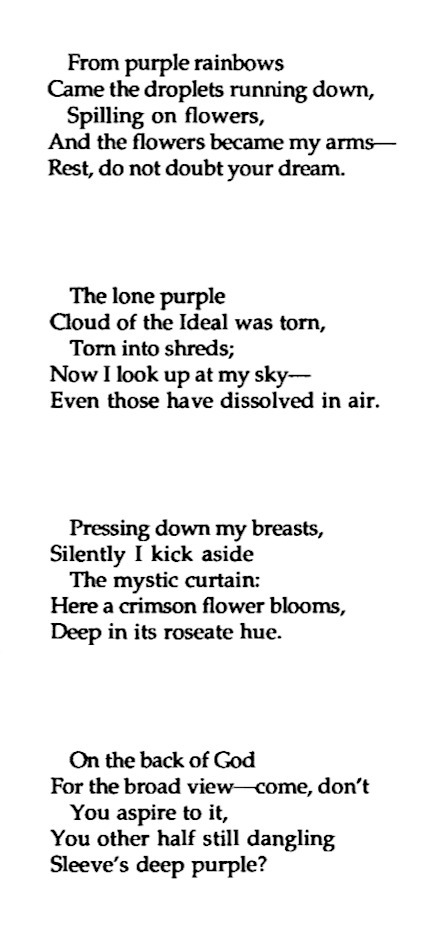
akiko yosano, tanka from midaregami (tangled hair), originally published in 1901. translated by edwin cranston, 1991.
#akiko yosano#the lone purple cloud of the ideal was torn!#tear down with me petal#porphyra phylactery vined vythos
14 notes
·
View notes
Text
Curious of The Tales of Genji, of which inspired Yosano Akiko’s ‘Midaregami.’
5 notes
·
View notes
Text
"Las interpretaciones son modas"

[El clarinetista Diego Montes (Córdoba, Argentina, 1958) / JOSÉ LUIS MONTERO]
Diego Montes presenta simultáneamente un par de discos en dúo, uno con la soprano Sachika Ito y otro con la violagambista Johanna Rose
En mayo de 2022 Diego Montes (Córdoba, Argentina, 1958) tuvo un serio problema de salud. “Se me reventó la aorta. Yo que nunca tuve que pasar por un hospital... Me operaron de urgencia y me pusieron un trozo de plástico. Siempre quise tener una aorta de plástico y al fin la tengo”, bromea. Los médicos le dijeron que se salvó por una serie de casualidades. “Coincidió que en el hospital estaba de guardia un chico alto, una eminencia en este tema.” Él a esas coincidencias les pone nombre: Dios. “Eso fue en mayo. Yo quería seguir tocando. En diciembre pude dar mi primer concierto. Pude seguir soplando, pero aquello cambió muchas cosas”.
Argentino de Córdoba, Montes hizo una extraordinaria carrera en Alemania junto a muchos de los mejores conjuntos de instrumentos de época hasta que decidió venirse a Sevilla. Vive en Salteras, “uno de los pueblos con más músicos por metro cuadrado de toda España”. Las bandas son allí muy importantes. “Son muy buenas. Yo me quedé impresionado porque son esas cosas que te llenan... Una vez, recuerdo, estaba una bandita tocando en la calle, lo hacía muy bien, estábamos comiendo, y la gente se divertía. Y de golpe el trompetista deja la trompeta y se para y dice, a ver, ¿quién baila conmigo? Y se pusieron a bailar. Eso es cultura. Yo toco todo tipo de música, he vivido la música barroca, hago contemporánea, electrónica... Pero eso es la cultura. Las bandas... Las bandas privadas que hacen que la cultura pulule. A principio del siglo pasado, la gente del pueblo se iba a trabajar al campo y se llevaba los instrumentos. Está el filósofo [Emilio] Lledó, que nació ahí, y yo una vez fui a la biblioteca, y había una foto y un tipo me dice, este es el padre de Lledó, y estaba con un bombardino, y me cuentan que muchos iban allí, al campo, volvían y ensayaban. Eso es maravilloso”.

La ficha
NOCTUARY DUOS
Gerardo Dirié (1958)
Noctuary Duos
La alameda de ida [clarinete bajo solo]
Bronze into the Water [viola da gamba sola]
Hand-Wound Fermious [clarinete bajo solo]
La alameda de vuelta [viola da gamba sola]
Johanna Rose, viola da gamba
Diego Montes, clarinete bajo
Ravello Records
Diego vincula todo eso con la política: “Me gusta el trabajo colectivo, entre todos. Porque en la música clásica está esa tiranía del compositor. Esta es mi música y la tocas así. Pero las interpretaciones son modas. Yo he hecho mucha música antigua, es la más temprana de todas las modas, comenzó en los años 60-70. Y están tocando sin vibrato y tal; son modas, pero fue tan fuerte la moda que empezó a influenciar a los demás. Y ahora eso se está volcando ya en otras cosas. A mí me encanta, por ejemplo, trabajar con Johanna Rose en la música contemporánea, porque es completamente otra forma de tocar”.
youtube
Con la violagambista alemana-sevillana acaba justo de publicar un disco con música de Gerardo Dirié –un argentino que trabaja en Australia–, un programa que hicieron en el Teatro Central. “Grabamos las piezas breves en dúo de aquel concierto, piezas para viola da gamba y clarinete bajo, que no se habían hecho nunca, pero luego Gerardo nos escribió obras para que las tocásemos como solistas.” En aquel concierto de marzo de 2019 hubo también música de Hilda Paredes, Ramón Gorigoitía y Bach. “Entre la pandemia y mi patatús no tuvimos ocasión de volver a hacerlo. Ahora quizás haya oportunidad. Lo quieren en Argentina. El disco lo publicó un sello americano hace cuatro días [el 12 de julio]. Está sólo en formato digital, y ya tenemos 700.000 oyentes. Nunca me había pasado algo así.”
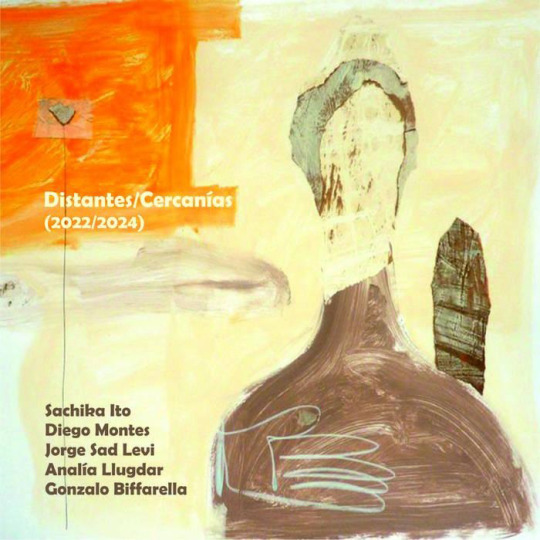
La ficha
DISTANTES / CERCANÍAS
Gonzalo Biffarella (1961): Tejiendo memorias I - Midaregami (Cabellos revueltos) [2022]
Jorge Sad Levi (1959): Boca di Piedra [2023]
Analía Llugdar (1972): Esperando a Perséfone [2024]
Gonzalo Biffarella (1961): Tejiendo memorias II - Hototogisu (El Cuco) [2024]
Sachika Ito, soprano
Diego Montes, clarinete y clarinete bajo
Paralelamente, Montes ha publicado, también en digital, un trabajo autoproducido junto a la soprano Sachika Ito (Distantes / Cercanías), que residió durante años en Sevilla. “La conocí haciendo Berio con Zahir Ensemble. Y me encantó, porque ella además cantaba ópera. Me interesó muchísimo, esta mujer tiene esa expresión, esa cosa teatral de la ópera y el resultado fue fantástico, formidable”. El álbum incluye tres obras de tres compositores argentinos, “todas centradas en la palabra. En la Biblia dice que al principio era el Verbo. Pero para mí, y esto lo estaba hablando con el compositor Biffarella, al principio fue el ruido, el sonido. Cuando un chico empieza a hablar emite sonidos. El concepto viene después, porque nosotros se lo proporcionamos: esto es una taza. Y en estas obras hay mucho de eso, el concepto está, pero muchas veces diluido, disperso, intencionadamente”. Las obras nacieron de las propuestas de los compositores, pero pasaron también por los dos, “tratando de evitar esa tiranía del compositor de la que le hablaba”.
youtube
Tejiendo memorias está formado por dos ciclos de canciones de Gonzalo Biffarella a partir de cuatro tancas de Akiko Yosano y cuatro haikus de Basho, Issa y Buson; estos últimos son también recitados en español por Yolanda Martos. Es música que incluye componente electrónico, como Boca di Piedra de Jorge Sad Levi, una obra sobre versos en ladino de Clarisse Nicoïdsky, la gran poetisa sefardita del siglo XX. Finalmente, Esperando a Perséfone de Analía Llugdar parte de un poema de la cordobesa Esther Ramondelli. Las tres obras están por estrenarse en concierto. “Queremos hacerlo en Argentina y en España, aunque aquí queremos incluir obras de compositores españoles”. Diego Montes piensa que la tecnología de la IA está trayendo un mundo nuevo. “Con Biffarella grabamos cada uno desde un sitio y la calidad era increíble. Y esto ya no se puede parar. Y no quiero pararlo, claro.”
[Diario de Sevilla. 21-07-2024]
#diego montes#sachika ito#johanna rose#ravello records#gerardo dirié#gonzalo biffarella#jorge sad levi#analía llugdar#núsica#music#Youtube
0 notes
Text
Hair all tangled this morning—
Shall I smooth it
With spring rain
Dripping from the jet-black
Wings of swallows?
from Yosano Akiko in Tangled Hair: Selected Tanka from Midaregami
(Translated by Sanford Goldstein and Seishi Shinoda)
1 note
·
View note
Text

-Yosano Akiko, Tangled Hair, Selected Tanka from Midaregami
Translated by Sanford Goldstein and Seishi Shinoda
29 notes
·
View notes
Note
50 + 84 + dazatsu or skk for the trope mashup meme?
50. Arranged Marriage
84. Married to the Job
hmmmmm....a bit of a tough one....but a fun one uwu
So I imagine it like this! (doing skk by the way, but since you offered dazatsu too I added a little bit of that!)
The marriage isn’t exactly arranged, but neither parties feel as though they have a choice.
After months of the organizations working together, fellow members mistaking their teasing and bickering for flirting, their efficiency for a deeper, intimate understanding, and the heads of both parties murmuring about an allegiance, they realize they have to cave.
It’s Atsushi that brings it up. He’s sitting with Dazai late at night, a habit they’ve gotten into when they both can’t sleep. They’ve always been a comfort to each other, and Dazai thought Atsushi could read him better than anyone else. He was proven wrong, though, when Atsushi asked, “So, everybody in the agency is talking about a wedding. Are you planning on proposing soon or something...?”
Dazai widens his eyes, not bothering to hide his surprise. “Eternal commitment? To Chuuya? That’s not exactly what I meant by a lover’s suicide, Atsushi.”
Atsushi is quiet, and Dazai tries desperately to fill the void, to block out the way the gears are grinding in his head. “I told you when we first met, I have no such tastes in men! I’ve been waiting my whole life to die with a beautiful woman! I won’t let Chuuya rob me of that opportunity!” He rambles on and on, using every excuse he can think of, until he asks, “What about us makes us seem so compatible, anyway?”
“Well, you two just have a chemistry. You know each other well and you seem to balance out each other’s weaknesses.”
“Yeah, in battle. In life, it’s a completely different story. Chuuya makes me wish I didn’t have mine anymore.”
“Everything makes you wish you didn’t have your life anymore, Dazai,” Atsushi chides, drawing his knees to his chest so he could rest his head on them. “I don’t know, I guess it’s because Chuuya’s such an important part of your past, and you seem so reluctant to lose some part of your history...I guess we just thought it was him.”
Dazai is quiet, and takes to watching the stars above. He isn’t sure what to think, but he starts to see that maybe he’s dug himself into a hole. Maybe that was his destiny, as one half of Double Black- to relinquish his passions and desires to bind the two organizations together and keep the peace in the city. Dazai allows himself to smile, a bittersweet quirk of his lips that Atsushi mistakes for happiness at the prospect of matrimony.
Oh, Atsushi-kun. I thought you could read me better than anybody. How I despised the slug, how utterly miserable I’ve been since these rumors started.
How I’d much rather it be you at the altar...
There isn’t a proposal, actually. There’s a late night discussion, not too long after the one with Atsushi, and a begrudging admittance that maybe it would be for the best.
There isn’t a ceremony, just Mori, Fukuzawa, and a few witnesses from each side for both security measures and sentimental value. Hirotsu watched quietly and respectfully, while Akutagawa sported an expression of confusion and...disgust? Dazai couldn’t say he blamed him. On his side, Kunikida watched with a blank face. The only one who seemed happy with this situation was Atsushi, who was watching with stars in his eyes and a grin on his face.
With the “legal” stuff taken care of (or, at least, as legal as things can be- Chuuya is a mafia executive, after all), they two organizations get to work with their new alliance. However, both newlyweds are very important to their respective agencies: they see less and less of each other the closer their one-year anniversary looms. Dazai starts taking his paperwork seriously, for once, often staying overtime to work on it. He takes late night missions, and Atsushi often crosses paths with him on late night, mind-clearing walks (they don’t sit outside together anymore, seeing as Chuuya absolutely refused to live in an ADA dormitory). Chuuya seems to have a similar idea, claiming to be staying at the office with mountains of paperwork and spending his nights at various bars.
They both came to a silent agreement that this marriage was not to each other; it was to their jobs, and the betterment of the city.
Atsushi seems the only person invested in the relationship, asking Dazai how things are going every chance he gets. He often encourages Dazai to go home early, to see his husband, and sometimes he’s so persistent Dazai can’t get away with staying in the office. “Atsushi-kun, if this was all it took to get you to volunteer to do my reports, I should’ve gotten married years ago!”
Atsush chuckles. “Well, at least you’re happy now, Dazai-san. Now you have it all!”
Dazai gives him a smile, and doesn’t let on how being bound to the mafia and sharing vows with his ex-partner only made him feel as if he lost everything he once had hope in.
#would an arranged marriage ever happen?#probably not#but hey man#anime logic#midaregamis#asks#my stuff#my stuff soukoku#soukoku#skk#dazai x chuuya#dazai osamu#chuuya nakahara#dazai#chuuya#trope mashup asks#my stuff bsd
22 notes
·
View notes
Photo

in 1901, akiko yosano, age 23, released a 399-poem collection titled みだれ髪 (Midaregami, "tangled hair"). the midaregami was immediate, personal, and often explicit. nearly all of the poems are, in some way, love poems. she stuck precisely to classical poetic forms but wasn't limited to words taken from the kokinshu. her writing used the imagery of formal poems—seasons, places, flowers—to describe longing, cynicism, joy, lust, and pettiness.
imagine what you can say about bodies with the word flower, when for two hundred years flower has meant springtime.
imagine what you can say about regret with the word rain, when for two hundred years rain has meant autumn.
poets hated it. it was un-buddhist, obscene, and feminist.
but after hundreds of years of stale poetry, it was alive.
here are the first five poems of the midaregami. as far as I know, the first, third, and fourth have never appeared in english. (plus my own translation of poems two and five because i like them.)
https://ttto.cafe/midaregami
this was part of a project i did with my friends called April Cools, where instead of playing pranks we worked on projects we would usually never do. you can find everyone else’s April Cools here: https://www.aprilcools.club/
8 notes
·
View notes
Photo

柿木[Kakinoki]
Diospyros kaki
柿[Kaki] : Persimmon
(の)[No] : Of
木[Ki] : Tree
It is native to East Asia. Its leaves turn red in autumn, which is called 柿紅葉[Kakimomiji]. 紅葉 means Acer. The fruits ripen in late autumn. And, note that the two kanjis 柿(Unicode: U+67FF) and 杮(Unicode: U+676E) are very similar in shape but have different meanings.
牛の子を 木かげに立たせ 絵にうつす 君がゆかたに 柿の花ちる
[Ushi no ko wo kokage ni tatase e ni utsusu kimi ga yukata ni kaki no hana chiru]
Persimmon flowers fall on your yukata as you stand a child cow in the shade of a tree and capture it in your painting. (浴衣[Yukata] is an informal cotton kimono worn in summer.)
From Midaregami by Yosano Akiko
https://en.wikipedia.org/wiki/Yosano_Akiko
5 notes
·
View notes
Text


akiko yosano, tanka from midaregami (tangled hair), originally published in 1901. translated by ad blankestijn.
3 notes
·
View notes